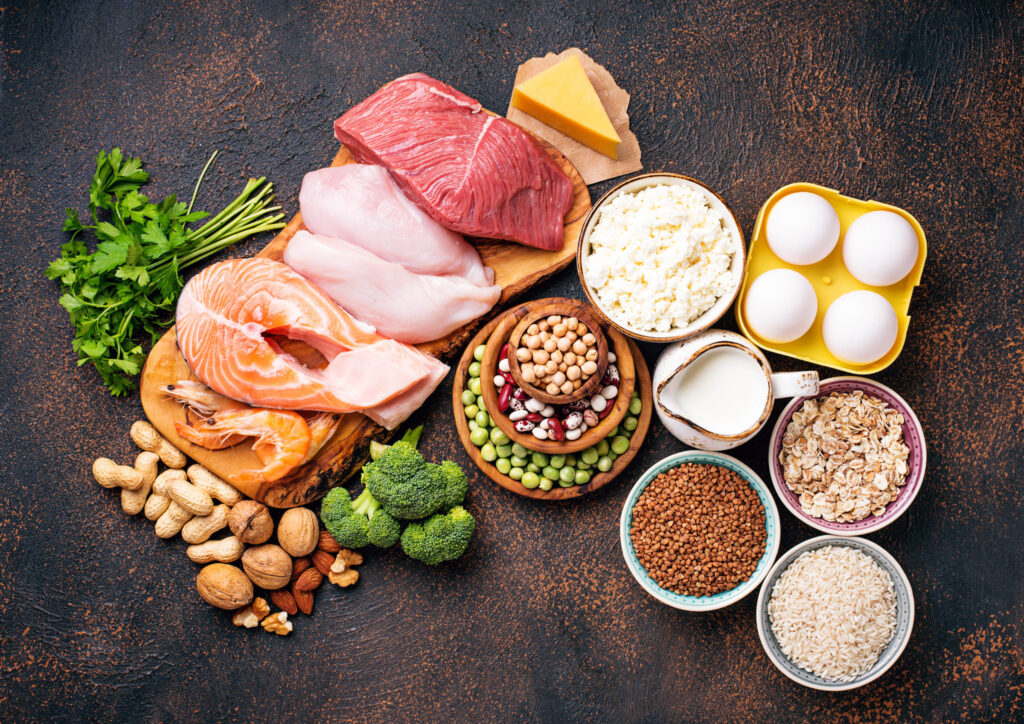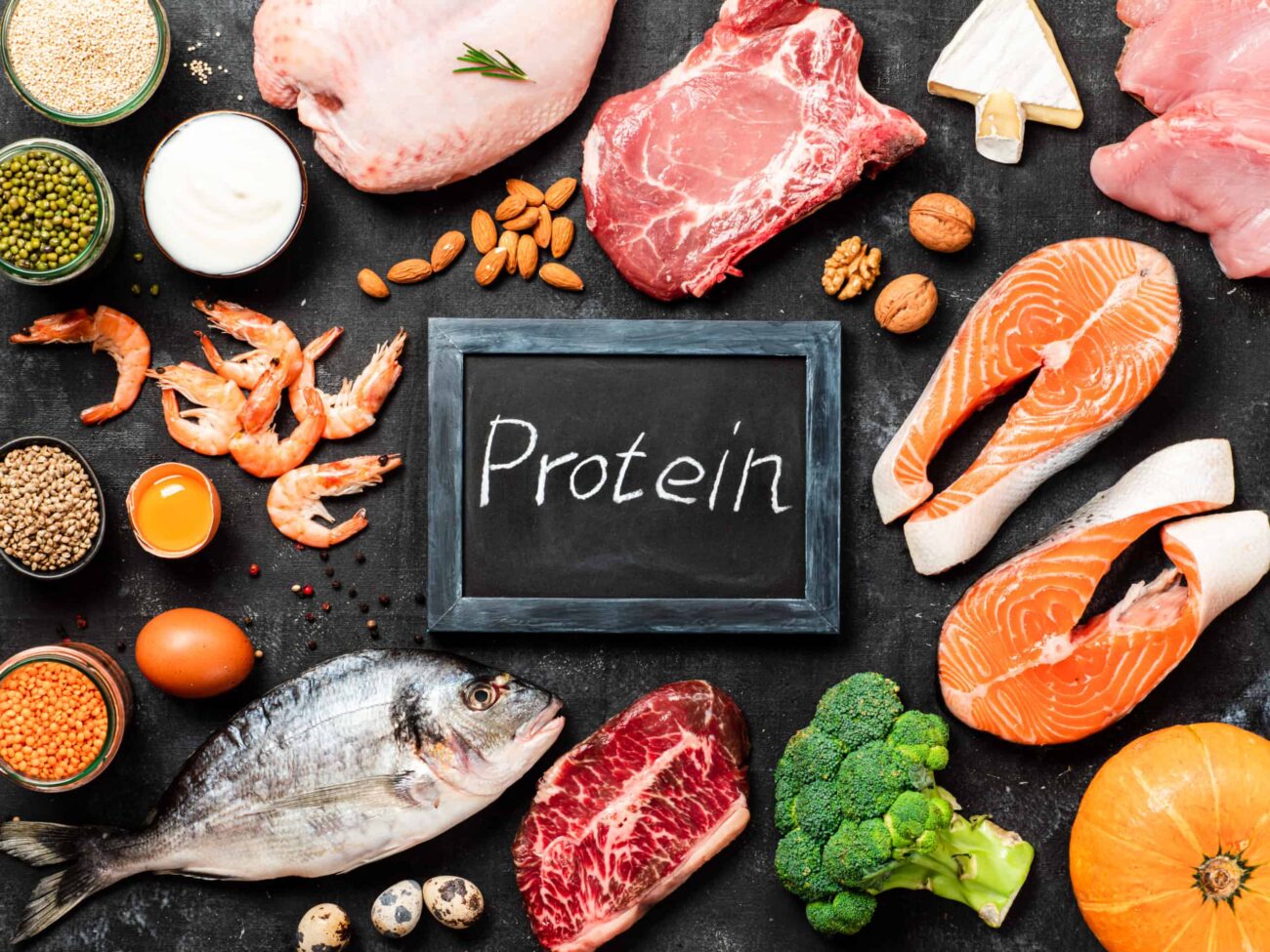Proteins are one of the most essential nutrients required by the human body, playing a critical role in nearly every biological process. Often referred to as the “building blocks of life,” proteins are involved in everything from muscle repair and immune function to hormone production and enzyme activity. Whether you’re an athlete, a fitness enthusiast, or simply someone looking to maintain a healthy lifestyle, understanding proteins—what they are, where to find them, and how they function—is key to optimizing your health.
Let’s dive into the world of proteins and explore their importance, sources, and roles in the body.
What Are Proteins?
Proteins are large, complex molecules made up of smaller units called amino acids. There are 20 different amino acids, nine of which are considered essential because the body cannot produce them on its own—they must be obtained through diet. These amino acids link together in various sequences to form proteins, each with a unique structure and function.
Proteins are found in every cell of the body and are involved in countless processes, from building and repairing tissues to regulating metabolism and supporting the immune system. Without adequate protein intake, the body cannot function optimally.
The Role of Proteins in the Body
Proteins are involved in nearly every aspect of bodily function. Here are some of their key roles:
- Muscle Growth and Repair
Proteins are essential for building and repairing muscles, making them a critical nutrient for athletes, bodybuilders, and anyone recovering from injury. They help repair muscle fibers that are broken down during exercise or physical activity. - Enzyme Production
Enzymes are proteins that catalyze biochemical reactions in the body, such as digestion, energy production, and DNA synthesis. Without enzymes, these processes would occur too slowly to sustain life. - Hormone Regulation
Many hormones, such as insulin and growth hormone, are made of proteins. These hormones regulate vital processes like blood sugar levels, metabolism, and growth. - Immune Function
Antibodies, which are specialized proteins, play a crucial role in the immune system by identifying and neutralizing harmful pathogens like bacteria and viruses. - Transport and Storage
Proteins help transport molecules throughout the body. For example, hemoglobin, a protein in red blood cells, carries oxygen from the lungs to tissues. Other proteins store nutrients like iron and oxygen for later use. - Structural Support
Proteins like collagen and keratin provide structural support to tissues, including skin, hair, nails, bones, and tendons. - Energy Source
While carbohydrates and fats are the body’s primary energy sources, proteins can also be broken down for energy when needed.
Sources of Protein
Proteins can be obtained from both animal and plant sources. Here’s a breakdown of some of the best protein-rich foods:
Animal-Based Proteins:
- Meat: Beef, chicken, turkey, pork, and lamb are excellent sources of complete proteins, containing all nine essential amino acids.
- Fish and Seafood: Salmon, tuna, shrimp, and cod are not only high in protein but also rich in omega-3 fatty acids.
- Eggs: Often referred to as the “gold standard” of protein, eggs are a complete protein source and highly versatile.
- Dairy Products: Milk, yogurt, cheese, and whey protein are rich in protein and also provide calcium for bone health.
Plant-Based Proteins:
- Legumes: Beans, lentils, chickpeas, and peas are affordable and nutrient-dense sources of protein.
- Nuts and Seeds: Almonds, walnuts, chia seeds, and flaxseeds provide protein along with healthy fats.
- Whole Grains: Quinoa, brown rice, oats, and bulgur contain moderate amounts of protein and are great for plant-based diets.
- Soy Products: Tofu, tempeh, and edamame are complete protein sources and popular among vegetarians and vegans.
- Vegetables: While not as high in protein as other sources, vegetables like broccoli, spinach, and Brussels sprouts contribute to overall protein intake.
How Much Protein Do You Need?
The recommended daily intake of protein varies depending on factors like age, sex, activity level, and overall health. Here are some general guidelines:
- Adults: 0.8 grams of protein per kilogram of body weight (about 0.36 grams per pound).
- Athletes or Active Individuals: 1.2 to 2.0 grams of protein per kilogram of body weight, depending on the intensity of their activity.
- Older Adults: May require slightly more protein to prevent muscle loss associated with aging.
For example, a 150-pound (68 kg) sedentary adult would need about 55 grams of protein per day, while an active individual might need 82 to 136 grams.
Signs of Protein Deficiency
Protein deficiency is rare in developed countries but can occur in certain populations, such as older adults, people with restrictive diets, or those with certain medical conditions. Symptoms of protein deficiency may include:
- Muscle weakness or loss
- Fatigue
- Slow wound healing
- Brittle hair and nails
- Swelling (edema) due to fluid retention
- Weakened immune function
Can You Have Too Much Protein?
While protein is essential, excessive intake can strain the kidneys and liver, especially in individuals with pre-existing conditions. High-protein diets may also lead to nutrient imbalances if they replace other important food groups like fruits, vegetables, and whole grains. Moderation and balance are key.

Proteins are indispensable to life, playing a vital role in nearly every bodily function. From building muscles and supporting immune health to regulating hormones and providing energy, proteins are truly the building blocks of life. Whether you prefer animal-based or plant-based sources, incorporating a variety of protein-rich foods into your diet is essential for maintaining optimal health.
So, the next time you enjoy a grilled chicken breast, a bowl of lentil soup, or a smoothie with Greek yogurt, remember that you’re not just satisfying your hunger—you’re fueling your body with the nutrients it needs to thrive.
Here’s to a protein-packed, healthy lifestyle! 💪🍗🥦

